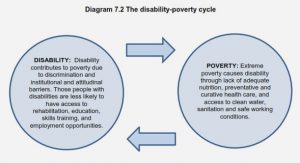Get Complete Project Material File(s) Now! »
Transformation within the South African context
Universally, education is a political issue and “the language of politics reflects in the language of education” (Vally & Speen, 1998 in Lawton & Gordon, 1998:119). The pre-1961 history of education in South Africa evolved over a period of 300 years into a separate schooling system for different race groups (Cross & Chrissholm, 1990: 49 cited in Welch, 2003:18).
The current education system with its systemic weaknesses has its roots in the previous dispensation’s Bantu Education Act of 1953 that created a segregated education system. Since independence in 1961 until 1994, South Africa was under apartheid rule, a period characterized by an ideology of racial segregation and racial inequality (Cross & Chrissholm, 1990:49 in Ratshitanga, 2007:15; Welch, 2003:18). ‘White education’1 benefited far more in terms of fiscal allocation, which resulted in disparities in all aspects of education (Department of Education, 1995:75). These disparities were most evident in teacher training, resources, and support in schools (African National Congress, 1995:4). The aim of ‘Black education’ was to prepare learners for the labour market (especially the mining industry) (Welch, 2003:19), as is evident from the following quote:
“There is no place for him (the black child) in European society above the level of certain forms of labour….What is the use of teaching a Bantu child mathematics when they cannot use it in practice?” (H.F. Verwoerd, 1960 as quoted by Ratshitanga, 2007:15).
The consequences of such underutilization of human potential currently manifest in skills shortages (Monyatsi, Steyn & Kamper, 2006:216). Apart from a racially segregated education system, there were two separate components for mainstream and special education, also characterized by racial disparity. This resulted in a fragmented education system with large numbers of learners being excluded from mainstream education (Naicker, 2000:1).
Chapter 1 Need for and development of a support programme for foundation phase teachers
1.1 Introduction
1.2 Proposed professional development programme .
1.3 Dimensions in the design of the research
1.4 Roadmap for the thesis
1.5 Summary and conclusions
Chapter 2 Continued professional development for teachers
2.1 Introduction .
2.2 Policies related to continued professional development .
2.3 Continued professional development in South Africa
2.4 Creating a supportive environment
2.5 Conclusion .
2.6 Appendices
Chapter 3 Components of the support programme
3.1 Introduction
3.2 The training component
3.3 The mentoring component
3.4 The practical component
3.5 Conclusions
3.6 Appendices .
Chapter 4 Programme evaluation
4.1 Introduction .
4.2 Approaches and models in programme evaluation .
4.3 Key aspects in programme evaluation
4.4 Conclusion
4.5 Appendix
Chapter 5 Research design and method
5.1 Introduction and framework for chapter .
5.2 Phase 1: Formulation phase of the research .
5.3 Planning and design phase of the research .
5.4 Early development and pilot testing .
5.5 Implementation and advanced development .
5.6 Conclusions .
5.7 Appendixes .
Chapter 6 Results and discussion of the input component
Chapter 7 Results and discussion of the process component
Chapter 8 Results and discussion of the output component
Chapter 9 Results and discussion of the outcomes
component
Chapter 10 Conclusion .
References






